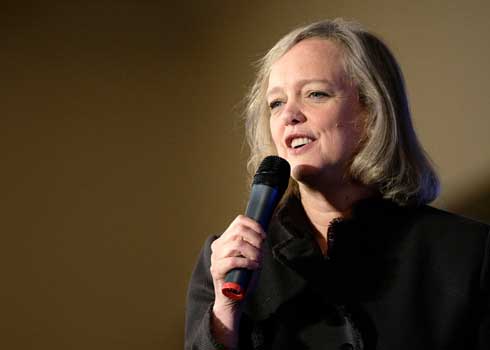Former eBay CEO Meg Whitman (R) has put another $20 million of her own money into her campaign to become the next governor of California. That brings her total self-financing thus far to an astonishing $59 million — the latest in a long line of candidates who have spent lavishly on their campaigns, and who have sometimes done so quite successfully.
Whitman’s spending is paying off so far. The TPM Poll Average shows her with a huge lead in the Republican primary, ahead of state Insurance Commissioner Steve Poizner by 59.6%-18.0%. And in the general election, she has taken a narrow lead over state Attorney General Jerry Brown, himself a former governor and presidential candidate, by 43.7%-41.5%. Whitman’s campaign has raised another $11.8 million from outside contributors, and her campaign has said she is willing to spend $150 million of her own money on the race.
So let’s take a look at some other major self-financiers — not simply people who spent $1 million, or $2 million, or $10 million, but tens and tens of millions of dollars, or have even crossed the $100 million line. After all, it’s quite conceivable that between the June 8 primary and the November general election, Whitman could end up outdoing them all in one campaign, in the country’s biggest state.
⢠Former Rep. Michael Huffington (R-CA) spent $30 million in 1994, in his unsuccessful Senate race against Democratic Sen. Dianne Feinstein. At the time, this was the most expensive Congressional race in history — but self-financing was only getting started.
⢠New York City Mayor Mike Bloomberg has also been a prolific self-financier, having spent ever-increasing amounts every four years. He spent $74 million in his first election in 2001, another $85 million in 2005, and then renewed his lease on Gracie Mansion for $102 million in 2009.
⢠Former Gov. Jon Corzine (D-NJ) spent big on this three statewide races. He spent $60 million on his successful Senate campaign in 2000, another $43 million on his successful gubernatorial race in 2005, and then $25.3 million for his failed re-election campaign in 2009.
⢠Businessman Steve Forbes spent big on his two unsuccessful runs for the Republican nomination for President: $37.9 million in the 1996 race, and $38.7 million for his 2000 campaign.
⢠Former Gov. Mitt Romney (R-MA) spent over $35 million of his own money on his unsuccessful bid for the Republican presidential nomination in the 2008 cycle.
⢠In the 2004 Illinois Senate race, businessman Blair Hull spent $24 million of his own money in his unsuccessful campaign for the Democratic nomination. A side effect of this was that under the “millionaire’s amendment” in McCain-Feingold — a clause that was later declared unconstitutional by the Supreme Court — Hull’s self-financing enabled Barack obama to raise a higher maximum donation amount form wealthy donors. Hull’s campaign collapsed when damaging material from his divorce files became public, and Obama won the primary in a landslide. Whether Obama would have won anyway without the divorce controversies, or the millionaire’s amendment, is something we will never truly know.









